I have the following code:
int main(int argc, char **argv)
{
App app(800, 600);
app.add_event_scene(Scene("Event Plot", event_plot));
Image x("sample.png");
struct foo { static void visual_plot() { x.draw(); } }; // Error.
app.add_visual_scene(Scene("Visual Plot", foo::visual_plot));
app.run();
return 0;
}
And I get the following error:
||=== Build: Debug in Joy-Plus-Plus (compiler: GNU GCC Compiler) ===|
G:\Development\Game-Development\CB\Joy-Plus-Plus\main.cpp|54|error: use of local variable with automatic storage from containing function|
G:\Development\Game-Development\CB\Joy-Plus-Plus\main.cpp|53|error: 'Image x' declared here|
||=== Build failed: 2 error(s), 0 warning(s) (0 minute(s), 0 second(s)) ===|
I'm writing a multimedia/game engine for the Allegro 5 library, and I've abstracted the drawing part of the main-loop (As well as the event parts) into "scene" objects with plots (Functions). Each procedure is passed to the App, so that it gets "run" inside the main-loop. The problem is, the "C++ approach" does not work:
Image x("sample.png");
void visual_plot()
{
x.draw(); // Problem.
}
int main(int argc, char **argv)
{
App app(800, 600);
app.add_event_scene(Scene("Event Plot", event_plot));
app.add_visual_scene(Scene("Visual Plot", visual_plot));
app.run();
return 0;
}
Although the code runs, this happens:

And if I put the x inside the visual_plot, the image is loaded normally:

But now I have a huge performance problem, since a new Image object is being created at each main-loop (And it's not long until the whole thing freezes).
The image is not found when I put it outside the scope of the function because it must come after the initialization of the App, but since I have a typedef function pointer in Scene that takes that function as an argument, I also must give it a void function. The problem is that I can't create local / nested functions in C++ (After the initialization of the App). So, in order to avoid the problem, I've tried the obvious (Lambda expression / closure):
int main(int argc, char **argv)
{
App app(800, 600);
app.add_event_scene(Scene("Event Plot", event_plot));
Image x("sample.png");
app.add_visual_scene(Scene("Visual Plot", [&x]()->void{x.draw();}));
app.run();
return 0;
}
The problem is that the second argument of the constructor of Scene takes a function pointer:
typedef void(*plot)();
typedef map<string, plot> act;
class Scene
{
private:
string name;
plot p;
public:
Scene(string name, plot p);
~Scene() {};
string get_name();
plot get_plot();
void set_name(string value);
void set_plot(plot value);
};
And since functions cannot be passed as parameters, and get decayed to pointers, the same also applies to the lambda expression (Which is not a function), so I get the following error:
G:\Development\Game-Development\CB\Joy-Plus-Plus\main.cpp|52|error: no matching function for call to 'Scene::Scene(const char [12], main(int, char**)::__lambda0)'|
Facing such a tragedy, how can I simulate a nested function in C++11? Since simulating like this answer does not work.
OBS: I agree that it could be a design problem, but I pretty much don't see it that way. For me, C++ just don't want me to pass that bloody function as a parameter by any means (So, I ask for the help of you long C++ Wizards).